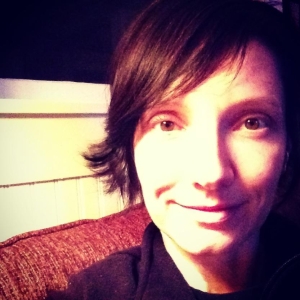
Peter Quince played Roger Sherman in “1776” last summer at the Camelot Theatre. He later played Charlie in David Ives’ “Mere Mortals” at Ashland Contemporary Theatre. Now Quince is launching his own musical comedy, collaborating with composer David Gabriel, called “Divine Lunacy.” Quince and I met at Noble Coffee.
EH: You’re working on a new musical?
PQ: “Divine Lunacy” was done as a sketch comedy review in 2006 with two sold-out performances at the Black Swan Theatre. It was wildly and enthusiastically received. People thought it was both hilarious and thought-provoking. It deals with the whole notion of the line between divine inspiration and out-and-out lunacy. As any artist probably knows, you may cross that line over and over again. If you come back, it’s OK. If you stay across that line, it could be a problem, and you have to be locked-up, or at least helped in some way.
Where is the line? How easy is it to cross? What’s the role of the artist in society? Many prominent artists in the last decade have been praised and lionized. Artists are encouraged to let themselves go over that line. Suddenly they have gone over the line, and they’re really troubled. “Divine Lunacy” talks about all of that in the context of a strong, heartwarming and funny show.
Mental illness has become extraordinarily prevalent. There are some estimates that one out of four people, at some point in their lives, are on psychiatric medication. It’s a huge issue in our society, but it’s not often dealt with openly, and certainly not with comedy and music, which is a gentler way to open people’s hearts and minds, making them feel and think, by making them laugh and care. “Divine Lunacy” shows what it’s like to be in the midst of crises or bouts of incredible creativity.
When is it, the divine spark? And when is it the infernal fire? It starts the same way, and it looks the same. We need that divine spark. We need to make it come to life, but it can consume as well as it can illuminate.
